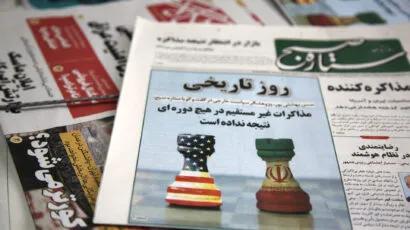China’s regional relationships
By Dingli Shen | October 4, 2007
For the Asia-Pacific region’s five powers, it’s important for both economic and security reasons that they achieve common ground and work together.
In addition to China’s good-neighbor policy, Beijing has carried out a policy of befriending
regional powers for the last 20 years. There are four regional powers in particular that directly
affect China–Russia, India, Japan, and Australia. Both for safeguarding Asia-Pacific stability and
expanding common economic prosperity, it’s imperative that all of these powers work together and of
the utmost importance that China develops a mutually respectful and beneficial relationship with
each.
Recently, some of these states have forged coalitions, usually with a regional outsider such as
the United States. For example, under Prime Minister Shinzo Abe, Japan championed alliances with
countries that shared its democratic values, establishing a quasi-military alliance with Australia
in hopes of safeguarding regional peace. As for India, it struck a nuclear agreement with
Washington and joined Japan and Australia (along with the United States) in staging a joint naval
exercise in the Indian Ocean, leaving some international observers to wonder whether these actions
had something to do with China’s emergence.
Such exercises could make China feel uncomfortable, but as long as Beijing aspires to a peaceful
rise, there’s no reason for it to worry. There are good reasons for China to defend its sovereignty
and integrity, and these are sound explanations for building its defense capabilities. But short of
defending its own territory, China has no territorial ambitions. Its next primary objective is to
develop its economy in a sustainable way.
Overall, China’s relationship with each of these regional powers is improving. With Yasuo Fukuda
assuming power in Japan, it seems as though Toyko will implement a more respectful foreign policy
that will help improve relations with its East Asian neighbors. At the very least, Japan can be
expected to employ a more stable and constructive external policy on issues that are sensitive to
China and the two Koreas. Obviously, China and Japan share a rich, but exceedingly complex,
relationship. To truly move forward in a constructive manner, both need to be courageous in dealing
with the past and more importantly, the future. Both countries share blame for their cool
relationship, so they each must look at themselves self-critically during future interactions.
Under John Howard’s decade-long tenure as Australian prime minister, Beijing and Australia have
established a robust economic and trade bond, and China appreciates Australian Foreign Minister
Alexander Downer’s view that the United States should not assume that Canberra must side with it on
the Taiwan issue automatically. Currently, polls indicate that Kevin Rudd will win the national
election in two months and become Australia’s next prime minister. If he does win, it’s expected
that China and Australia’s relationship will continue to grow, given Rudd’s good command of Chinese
affairs.
In the post-Cold War era, Russia no longer reaches out globally–neither militarily nor
economically. Largely, Moscow has been restrained in Eurasia and pressed on NATO expansion, missile
defense, and regional energy issues by the United States. But as Russia’s global standing has
decreased, Russian-Chinese ties have grown stronger. Beijing has settled its border dispute with
Moscow, and China has secured some access to Russia’s military technology and energy resources.
Generally, Beijing and Moscow are rapidly lessening their mutual suspicion.
And finally, there has been steady improvement in Sino-Indian relations. Indian Prime Minister
Manmohan Singh will visit China this fall, and he has promised that “the India-U.S. tie shall not
affect India-China relations.” He’s right, of course. New Dehli only benefits from China’s rise, as
it garners India more and more attention. So if China continues to prosper, in this particular
strategic angle, India will also prosper.
No matter what happens in the future, however, Beijing’s policy to befriend major regional
powers will remain unchanged. The ongoing changes in regional political dynamism simply offers
China an improved opportunity to do so.
Together, we make the world safer.
The Bulletin elevates expert voices above the noise. But as an independent nonprofit organization, our operations depend on the support of readers like you. Help us continue to deliver quality journalism that holds leaders accountable. Your support of our work at any level is important. In return, we promise our coverage will be understandable, influential, vigilant, solution-oriented, and fair-minded. Together we can make a difference.
Topics: Columnists















